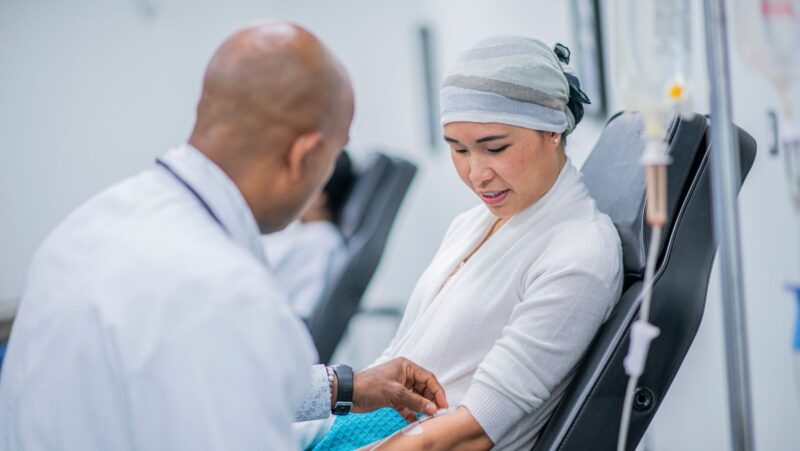
A health science degree opens doors to diverse and rewarding career opportunities in healthcare and related fields. This versatile qualification equips graduates with essential knowledge in biology, anatomy, research methods and healthcare systems – making them valuable assets across multiple sectors.
Today’s healthcare industry continues to grow rapidly creating high demand for skilled professionals with health science backgrounds. Whether someone dreams of working directly with patients providing care or behind the scenes managing healthcare facilities there’s a path for every interest. From clinical research and public health to healthcare administration and medical device sales health science graduates can explore numerous career trajectories that offer both competitive salaries and job security.
What Careers can you get with a Health Science Degree
A health science degree equips students with comprehensive healthcare knowledge through interdisciplinary coursework. This versatile degree program combines biological sciences with healthcare management principles.
Core Skills and Knowledge Gained
Health science programs develop essential competencies for healthcare careers. Graduates gain expertise in:
- Laboratory techniques for specimen handling analysis
- Medical terminology for clinical documentation
- Data analysis methods for healthcare research
- Patient care protocols in clinical settings
- Healthcare technology systems operation
- Quality assurance procedures implementation
- Cross-functional team collaboration skills
Types of Health Science Programs
Health science education offers multiple specialized paths:
- Bachelor of Science (BS) in Health Science
- Clinical track for patient care roles
- Administrative track for management positions
- Research track for scientific careers
- Associate of Science (AS) in Health Science
- 2-year foundation program
- Transfer pathway to BS programs
- Entry-level healthcare positions
- Master of Science (MS) in Health Science
- Advanced clinical specialization
- Healthcare leadership focus
| Degree Level | Duration | Credit Hours | Career Focus |
|---|---|---|---|
| Associate | 2 years | 60-65 | Entry-level positions |
| Bachelor’s | 4 years | 120-128 | Professional roles |
| Master’s | 2 years | 30-36 | Leadership positions |
Clinical Healthcare Careers
Clinical healthcare careers offer direct patient interaction opportunities for health science degree holders in medical facilities, hospitals, clinics or private practices. These positions blend scientific knowledge with hands-on patient care.
Nursing and Patient Care
Registered nurses with health science degrees provide direct patient care in hospitals, clinics or long-term care facilities. Common nursing roles include:
- Clinical nurse specialists focusing on specific patient populations (pediatrics, geriatrics, oncology)
- Nurse practitioners conducting patient assessments, prescribing medications or developing treatment plans
- Public health nurses implementing community health programs in schools, government agencies or nonprofit organizations
- Operating room nurses assisting during surgical procedures or managing perioperative care
Healthcare Administration Roles
Healthcare administrators manage clinical operations in various medical settings. Key positions include:
- Clinical department managers overseeing staff schedules, budgets or facility resources
- Quality improvement coordinators monitoring patient care standards or implementing process improvements
- Clinical operations directors managing multiple departments or facilities
- Patient services coordinators facilitating care transitions or insurance authorizations
Medical Technology Positions
Medical technologists use advanced equipment to support clinical diagnoses. Primary roles include:
- Laboratory technologists analyzing blood samples, tissue specimens or other diagnostic tests
- Radiologic technologists operating imaging equipment (X-ray, CT, MRI)
- Clinical research technicians conducting medical studies or collecting data
- Medical equipment specialists calibrating or maintaining diagnostic instruments
| Position Type | Median Annual Salary (USD) | Job Growth Rate |
|---|---|---|
| Registered Nurse | $77,600 | 6% |
| Healthcare Administrator | $104,280 | 28% |
| Medical Technologist | $57,800 | 7% |
Research and Laboratory Opportunities
Health science graduates access diverse research positions in medical facilities pharmaceutical companies clinical research organizations biotechnology firms. These roles combine scientific expertise with healthcare knowledge to advance medical discoveries treatments.
Clinical Research Coordinator
Clinical Research Coordinators oversee medical studies clinical trials patient recruitment data collection. They manage research protocols ensure compliance with regulatory requirements maintain study documentation coordinate with healthcare providers participants. The median annual salary for Clinical Research Coordinators is $63,500 with a 15% job growth rate through 2031.
| Clinical Research Coordinator Responsibilities | Percentage of Time |
|---|---|
| Protocol Management | 35% |
| Patient Coordination | 25% |
| Data Collection Analysis | 20% |
| Regulatory Compliance | 20% |
Laboratory Technologist
Laboratory Technologists perform complex tests analyze biological specimens operate sophisticated equipment maintain laboratory protocols. They work in hospital labs research facilities diagnostic centers conducting tests on blood tissue other samples. The average annual salary ranges from $54,180 to $83,170 based on specialization experience.
| Laboratory Testing Areas | Required Certification |
|---|---|
| Clinical Chemistry | MLT/MLS |
| Hematology | MLT/MLS |
| Microbiology | MLT/MLS |
| Molecular Diagnostics | MB/ASCP |
Medical Research Assistant
Medical Research Assistants support scientific investigations collect analyze research data maintain laboratory equipment. They collaborate with principal investigators prepare research materials document findings assist with experiment setup. Entry-level positions start at $38,000 annually with experienced assistants earning up to $58,000.
| Research Assistant Tasks | Technical Skills Required |
|---|---|
| Data Collection | Statistical Software |
| Lab Maintenance | Equipment Operation |
| Sample Processing | Documentation Systems |
| Literature Review | Research Databases |
Public Health and Community Wellness
Public health careers focus on promoting health awareness and preventing diseases at the population level. These positions combine healthcare knowledge with community outreach to improve public health outcomes.
Health Education Specialist
Health Education Specialists develop educational programs to promote wellness in communities. They create health literacy materials, conduct workshops on preventive care topics like nutrition and exercise, and evaluate program effectiveness. The median annual salary for Health Education Specialists is $48,860, with a projected job growth rate of 12% through 2031.
Key responsibilities:
- Design evidence-based health education programs
- Create educational materials in multiple formats
- Assess community health needs through data analysis
- Implement behavior change interventions
- Track program metrics and outcomes
Community Health Worker
Community Health Workers serve as bridges between healthcare systems and local populations. They conduct outreach activities, facilitate access to health services, and provide basic health education in culturally appropriate ways. The average annual salary ranges from $35,830 to $65,890, depending on location and experience.
Primary duties:
- Connect residents to healthcare resources
- Conduct home visits for health screenings
- Organize community health events
- Provide translation services when needed
- Maintain records of client interactions
Public Health Program Manager
Public Health Program Managers oversee large-scale health initiatives and coordinate multiple stakeholders. They develop strategic plans, manage budgets, and supervise program staff to achieve public health objectives. Program Managers earn a median salary of $75,040, with experienced managers reaching $98,350.
- Direct public health campaigns
- Allocate program resources
- Monitor program performance metrics
- Coordinate with government agencies
- Develop partnership strategies
- Execute quality improvement plans
Corporate and Private Sector Roles
Health science graduates excel in corporate environments where healthcare expertise intersects with business operations. These roles combine clinical knowledge with commercial applications across multiple industries.
Healthcare Consulting
Healthcare consultants leverage their health science background to optimize medical operations for healthcare organizations. Entry-level consultants earn $65,000-$85,000 annually, while senior consultants command salaries of $120,000-$150,000. Key responsibilities include:
- Analyzing healthcare delivery systems for efficiency improvements
- Implementing regulatory compliance protocols
- Developing strategic plans for medical facilities
- Creating cost-reduction strategies while maintaining quality care
- Recommending technology solutions for patient care management
Medical Sales and Marketing
Medical sales representatives utilize their health science knowledge to market pharmaceutical products medical devices to healthcare providers. The position offers competitive compensation packages:
| Position Level | Base Salary | Total Compensation (with commission) |
|---|---|---|
| Entry Level | $50,000 | $65,000-$85,000 |
| Mid-Career | $75,000 | $95,000-$125,000 |
| Senior Level | $95,000 | $150,000-$200,000 |
Core responsibilities include:
- Demonstrating medical equipment functionality to healthcare professionals
- Managing sales territories across multiple healthcare facilities
- Providing product education to medical staff
- Maintaining client relationships with hospitals clinics
- Analyzing market trends to identify sales opportunities
Insurance Industry Positions
Health insurance companies employ health science graduates in various roles focused on policy management claims processing. Common positions include:
- Medical Claims Analysts ($45,000-$65,000)
- Underwriters ($60,000-$90,000)
- Care Coordinators ($50,000-$75,000)
- Policy Specialists ($55,000-$80,000)
- Healthcare Data Analysts ($65,000-$95,000)
- Evaluating insurance claims for medical necessity
- Assessing health risks for policy coverage
- Coordinating patient care plans with providers
- Analyzing healthcare utilization patterns
- Developing insurance products based on market needs
Academic and Educational Paths
A health science degree opens multiple pathways in academic institutions from teaching roles to program development positions. These careers combine healthcare expertise with educational leadership to shape future healthcare professionals.
Teaching and Training
Health science graduates pursue teaching positions at various educational levels including high schools community colleges universities. College professors earn median salaries of $79,640 while high school health science teachers earn $62,870 annually. Common teaching roles include:
- Anatomy laboratory instructors managing student dissections practical examinations
- Health science faculty developing course curricula assessment methods
- Clinical skills trainers teaching medical procedures patient care techniques
- Continuing education instructors providing professional development for healthcare workers
- Simulation lab coordinators overseeing medical training scenarios equipment
- Designing competency-based healthcare curricula aligned with industry standards
- Creating online learning modules interactive training materials
- Establishing program evaluation metrics assessment tools
- Coordinating with subject matter experts clinical partners
- Managing accreditation requirements program compliance
- Developing simulation-based learning scenarios equipment protocols
- Integrating new healthcare technologies teaching methodologies
| Position | Median Annual Salary | Job Growth Rate (2021-2031) |
|---|---|---|
| College Professor | $79,640 | 12% |
| High School Teacher | $62,870 | 5% |
| Program Developer | $80,000 | 8% |
| Clinical Trainer | $72,500 | 10% |
Contributions to Healthcare Delivery
A health science degree opens doors to an incredibly diverse range of career opportunities in healthcare clinical roles research positions public health initiatives and corporate settings. Whether someone’s passion lies in direct patient care laboratory analysis community outreach or business operations there’s a fulfilling path forward.
With strong job growth projections and competitive salaries across multiple sectors health science graduates can build rewarding careers while making meaningful contributions to healthcare delivery and population health. The field’s versatility combined with increasing healthcare demands ensures lasting career stability and advancement opportunities for those who pursue this educational path.
The comprehensive skillset gained through a health science degree provides the foundation needed to adapt and thrive in healthcare’s evolving landscape making it an excellent choice for those seeking a dynamic and impactful career.













